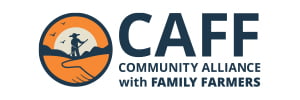FOOD SAFETY
RESOURCES FOR FARMERS
From fact sheets to webinars to tips on value-added products, below you’ll find a variety of resources to help keep your produce safe and your farm in compliance with new food safety regulations.
Food Safety Plans
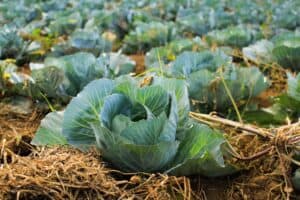
Financial Assistance Available for Food Safety Certification
A new program through USDA’s Farm Service Agency is providing reimbursement for on-farm food safety program expenses related to obtaining or renewing a food safety certification in calendar years 2022 and/or 2023.

Food Safety Plan Resources – English
You can find our English food safety plan template and corresponding resources on this webpage. Resources are available in free word documents to download or as google docs that you

Plantillas de Planes de Inocuidad Alimentaria en Español
Las plantillas gratuitas del plan de seguridad alimentaria de CAFF para pequeños agricultores ya están disponibles en español. Las plantillas pueden ser utilizadas por los agricultores que necesitan cumplir con

Plantillas de Planes de Inocuidad Alimentaria Actualizadas en Español
La plantilla gratuita del plan de inocuidad alimentaria de CAFF para pequeños agricultores ha sido actualizada recientemente. La plantilla está orientada a los agricultores que necesitan cumplir con la Ley

Written Plans: FSMA & NOP
This factsheet discusses an overview of what farms need to have for a written food safety plan if their need to be in full compliance with FSMA. There is also

Recordkeeping: FSMA & NOP
This factsheet explains the records farms that need to be in full compliance with FSMA must have and compares those vs. what records are required for the national organic program
For Food Hubs

Guía Sobre Incendios Forestales y Inocuidad Alimentaria
INTRODUCCIÓN La Ley de Modernización de Inocuidad de los Alimentos fue promulgada en 2011 y comprende numerosas normas. Una de ellas es la Norma de Seguridad de los Productos Agrícolas

Deciding On Ecommerce For Your Farm
The Small Farm Tech Hub at CAFF developed a resource to help guide farmers on assessing if ecommerce is a good fit for your business, and at what level. Click

Tell state leaders: Don’t cut $27 million from local food & small farms!
Thank you for joining us to ensure small-scale farmers don’t get left out of this year’s State Budget and for pushing back against Governor Newsom’s proposed cuts to critical local
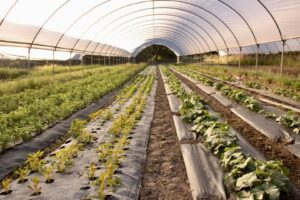
Now Available: “Understanding the Science Behind Climate Smart Agriculture in California: A comprehensive literature review”
As part of CAFF’s Ecological Farming Program, we collaborate with farmers to implement and better understand ecologically-based farming practices, which include climate smart farming and soil health practices. Climate smart

Donor Relationship Manager / Director of Philanthropy
Title: Donor Relationship Manager or Director of Philanthropy (depending on experience) Location: Northern California / Hybrid / Frequent Travel FTE: 80-100% FTE Salary: $82,000 – $100,000 annually FLSA: Exempt Reports
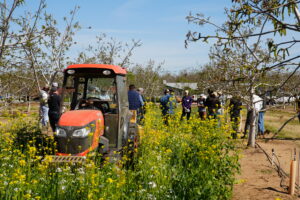
Ecological Farming Program Manager
Job Title: Ecological Farming Program Manager Location: Northern California, Davis area or Central Coast preferred / hybrid/ remote work option available FTE: 100% FTE Starting Salary: $58,000 – $65,000 annually
Podcast Episodes

Luna’s Farm Podcast Episode (en Español)
Dear listeners, click here to listen to our last episode of the season. We hope you enjoy this special episode in Spanish hosted by our podcast producer, Jaime Roque. In

Luna’s Farm Podcast Episode (en Español)
Queridas oyentes, este es nuestro último episodio de la temporada. Esperamos que disfrute de este episodio especial en español presentado por el productor de nuestro podcast, Jaime Roque. En este

Stone’s Throw Farm Podcast Episode
In this episode we visit Stone’s Throw Farm, an organic vegetable and flower farm located in Colfax, California. We sat down with Bryanna Eisenhut, co-owner and operator of Stone’s Throw,

Vitis and Ovis Farm Podcast Episode
In this episode we visit Vitis and Ovis Farm, a multi-generational Swiss-American-Ethiopian family farm located in the Capay Valley and specializing in pastured duck eggs, fruit and medicinal herbs. We

Sherman Produce Podcast Episode
In this episode we visit Donald Sherman at his farm in Kerman, California. Donald owns and operates Sherman Produce, a year-round diversified vegetable farm and produce market distributing throughout Fresno

Urban Tilth Podcast Episode
In this episode we visit Urban Tilth, a community-based organization in Richmond, California. We learn about the organization’s mission and programs to cultivate agriculture and build a more sustainable, healthy

Sysourath Farms Podcast Episode
In this episode we visit Sysourath Farms in Fresno, California. Veomany Sysourath, a second generation farmer, shares about her family’s history emigrating to the United States, working in agriculture and

Steve Fukagawa Farms Podcast Episode
In this episode we visit Steve Fukagawa Farms in Kingsburg, California. Steve Fukagawa is a third generation Japanese farmer, growing organically in the San Joaquin Valley. We learn about Steve’s

Interview with Daniel Karp, Associate Professor at UC Davis Podcast Episode
In this episode we interview Daniel Karp, Ph.D., Associate Professor at UC Davis studying conservation in working landscapes. Danny describes his research related to wildlife habitat conservation and bird activity

Jacobs Farm / del Cabo Podcast Episode
In this episode we visit Jacobs Farm / del Cabo in Watsonville, California. Larry Jacobs, one of the co-founders, tells us about the company history and relationship with growers in

Coastal Roots Farm Podcast Episode
In this episode we visit Coastal Roots Farm in Encinitas, California. We learn about the farm’s mission to connect agriculture, education and ancient Jewish wisdom. The farmers give us a

Fresno Freedom School Podcast Episode
In this episode we hear from Dr. Floyd D. Harris Jr. of Fresno Freedom School in Fresno, California. We learn about the organization’s history and mission to connect Fresno’s youth
Food Safety Modernization Act (FSMA)

FSMA Inspection Case Study: CDFA FSMA PSP Inspector
This interview is part of our Food Safety Modernization Act (FSMA) case study series. In earlier case studies we interviewed other farmers and they talked about food safety practices they
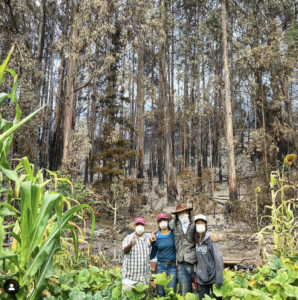
Food Safety & Wildfires Case Study: Brisa Ranch
Key Details: Location: San Francisco bay area , near Pescadero Acres in Production: 16 Main Crops: Fruit, vegetables, flowers Wildfire: CZU Complex in 2020 3rd Party Audit(s): USDA Harmonized GAP
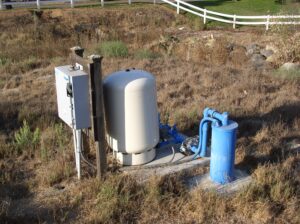
FSMA Water Updates June 2022
Confused about FSMA Water Requirements? In 2011 President Obama signed into law the Food Safety Modernization Act (FSMA). The law updated our federal food safety requirements and for the first
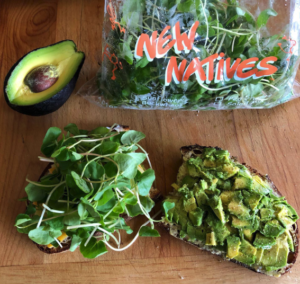
FSMA Inspection Case Study: New Natives Farm
Key Details: Location: California Central Coast Main Crop(s): Microgreens FSMA PSR Inspection: 1/7/2020 3rd Party Audit(s): USDA Harmonized GAP/GMP Certified Organic by National Organic Program: Yes Owners: Ken and Sandra

Food Safety Plan Resources – English
You can find our English food safety plan template and corresponding resources on this webpage. Resources are available in free word documents to download or as google docs that you
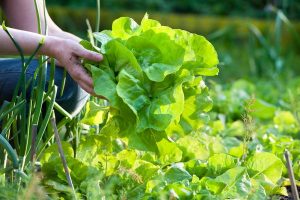
PC Rule Supplier Verification Guide
Are you part of a food hub and confused about what Food Safety Modernization Act (FSMA) food safety requirements you need to require from farmers you source from? Or, are

Small Farm FSMA Series Post 4 of 4
SMALL FARM FSMA SERIES – POST 4 of 4 Author: Stepheni Norton, Regional Food Safety Specialist FSMA is serious business, so we have a few disclaimers before we dig in.

NOP/FSMA/3rd Party Audit Food Safety Guide
This guide provides charts that give a side-by-side comparison of the similarities and differences between the requirements of the National Organic Program, Food Safety Modernization Act, and 3rd Party Food

PC Rule Guide for Food Hubs and Values-Based Buyers
FSMA Supplier Verification Demystified The Food Safety Modernization Act (FSMA) is composed of seven main rules or sections. Th common name of one of those sections is the PC or

Small Farm FSMA Series Post 3 of 4
Author: Stepheni Norton, San Diego Regional Food Safety Specialist FSMA is serious business, so we have a few disclaimers before we dig in. Advice provided here is meant for QUALIFIED

Worker Health & Hygiene: FSMA & NOP
This factsheet explains what farms that need to be in full compliance with the federal Food Safety Modernization Act (FSMA) need to do to be in compliance with worker health

Wild & Domestic Animals: FSMA & NOP
This factsheet provides an overview of what farms that need to be in full compliance with the federal Food Safety Modernization Act (FSMA) need to do to meet wild and

Monitoring Animals: FSMA & NOP
This factsheet provides an overview of what a farm that needs to be in full compliance with the federal Food Safety Modernization Act (FSMA) needs to do in regards to

Land Use: FSMA & NOP
This factsheet provides an overview of what farms that need to be in full compliance with the federal Food Safety Modernization Act (FSMA) need to do in regards to their

Soil Amendments from Animals: FSMA & NOP
This factsheet explains what farms that need to be in full compliance with the federal Food Safety Modernization Act (FSMA) need to do with their soil amendments of animal origin

Written Plans: FSMA & NOP
This factsheet discusses an overview of what farms need to have for a written food safety plan if their need to be in full compliance with FSMA. There is also

Recordkeeping: FSMA & NOP
This factsheet explains the records farms that need to be in full compliance with FSMA must have and compares those vs. what records are required for the national organic program

FSMA 101 vs. Organic Regulations
This factsheet provides an overview of the three farm categories within the federal Food Safety Modernization Act (FSMA) and relates that food safety regulation to the national organic program (NOP)

New FDA Guidance on FSMA Qualified Exempt Requirements During Covid
The Food and Drug Administration (FDA) recently released temporary guidance on the requirements that farms must meet to be considered qualified exempt under the Federal Food Safety Modernization Act (FSMA).

Small Farm FSMA Series – Part 2 of 4
Not Covered ≠ No Paperwork By: Stepheni Norton, San Diego Regional Food Safety Specialist Last Updated: March 19th, 2020 Basic record keeping to prove you’re not covered farm status. FSMA

Small Farm FSMA Series – Part 1 of 4
The 1 Thing Every Farm Must Do By: Stepheni Norton, San Diego Regional Food Safety Specialist Last Updated March 19th, 2020 Regardless of size, every farm must perform a self-assessment

FSMA Produce Safety Rule Inspection Updates
Looking to learn more about when and how Food Safety Modernization Act (FSMA) Produce Safety Inspections will happen in California? Read this blog post to learn about the current timeline

FAQ: Food Safety Modernization Act (FSMA)
New NSAC Food Safety Modernization Act Resource: Food Safety Training Requirements for Produce Farms If my farm is fully subject to FSMA do I need to schedule an inspection? No. If your

Requirements for Farms that Must Fully Comply with FSMA: Part 2
Organic agricultural professionals are invited to join the CCOF Foundation and Community Alliance with Family Farmers (CAFF) for a series of webinars on how the new federal food safety regulations
Organics & Food Safety

NOP/FSMA/3rd Party Audit Food Safety Guide
This guide provides charts that give a side-by-side comparison of the similarities and differences between the requirements of the National Organic Program, Food Safety Modernization Act, and 3rd Party Food

Worker Health & Hygiene: FSMA & NOP
This factsheet explains what farms that need to be in full compliance with the federal Food Safety Modernization Act (FSMA) need to do to be in compliance with worker health

Wild & Domestic Animals: FSMA & NOP
This factsheet provides an overview of what farms that need to be in full compliance with the federal Food Safety Modernization Act (FSMA) need to do to meet wild and

Monitoring Animals: FSMA & NOP
This factsheet provides an overview of what a farm that needs to be in full compliance with the federal Food Safety Modernization Act (FSMA) needs to do in regards to

Land Use: FSMA & NOP
This factsheet provides an overview of what farms that need to be in full compliance with the federal Food Safety Modernization Act (FSMA) need to do in regards to their

Soil Amendments from Animals: FSMA & NOP
This factsheet explains what farms that need to be in full compliance with the federal Food Safety Modernization Act (FSMA) need to do with their soil amendments of animal origin

Written Plans: FSMA & NOP
This factsheet discusses an overview of what farms need to have for a written food safety plan if their need to be in full compliance with FSMA. There is also

Recordkeeping: FSMA & NOP
This factsheet explains the records farms that need to be in full compliance with FSMA must have and compares those vs. what records are required for the national organic program

FSMA 101 vs. Organic Regulations
This factsheet provides an overview of the three farm categories within the federal Food Safety Modernization Act (FSMA) and relates that food safety regulation to the national organic program (NOP)
Value-Added Products
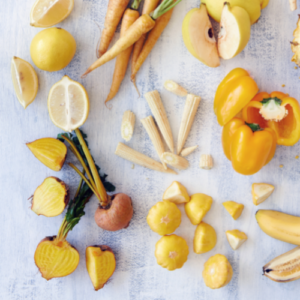
Value-Added Product Success, Three Farms Share Their Stories
CAFF’s Tech Hub is hosting a three part webinar series on value-added products and success stories of small producers using Ecommerce. The series highlights farmers who have developed their business

Value-Added Producer Grant Scholarship Program
Photo by Zoe Schaeffer on Unsplash CAFF’s Value-Added Producer Grant (VAPG) Scholarship Program provides partial funding for farmers to work with Ellen Rawley Creative & Strategy, Inc. to write and
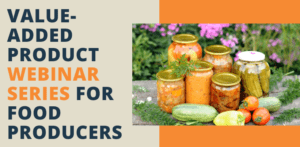
Value-Added Product Webinar Series for Farmers
Note: This webinar series has passed. Click here to watch the webinar series on CAFF’s YouTube Channel. Are you a farmer or rancher interested in producing or scaling a value-added

Value-Added Products Regulatory Overview
Farms and food businesses processing foods into value-added products such as tomato sauce, salsa, and hot sauce need to be aware of the various state and federal food safety regulations

Processed Food Registration Permit
Interested in preserving fresh farm crops into tomato sauce, pickles, and other canned products? In California you need to be aware of value-added product food safety regulations affiliated with these

Cannery License Program
Farmers and food business makers processing raw agricultural products into shelf stable canned products may need to be in compliance with the California Cannery License Program. We have a pdf
Recursos en español

Una guía para la certificación de la seguridad alimentaria para centros de distribución de alimentos e instalaciones alimentarias
Esta guía está redactada para centros de distribución de alimentos y otras instalaciones alimentarias que busquen información sobre cómo tratar las preguntas sobre seguridad alimentaria de los compradores y conseguir

Herramientas de verificación de proveedores
Un recurso para ayudar a los agricultores y a quienes les compran a cumplir las normas de verificación de proveedores de la Ley de modernización de la inocuidad alimentaria.

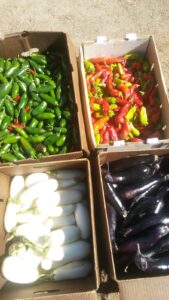
Directrices de inocuidad alimentaria para pequeñas granjas de California
La siguiente lista de recomendaciones debe tenerse en cuenta durante la producción, la cosecha, la transformación y el transporte de los cultivos.

Programa de certificación de inocuidad alimentaria para cultivos especiales
Un nuevo programa a través de la Agencia de servicios agrícolas del USDA está proporcionando el reembolso de los gastos del programa de inocuidad alimentaria en la granja relacionados con
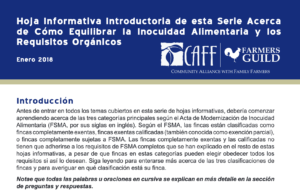
La Inocuidad Alimentaria Vs. los Requisitos Orgánicos
Esta hoja informativa proporciona una descripción general de las tres categorías de fincas dentro de la Ley Federal de Modernización de la Seguridad Alimentaria (FSMA por sus siglas en inglés)
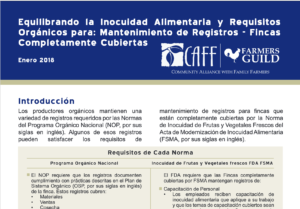
FSMA Y NOP: Mantenimiento de registros
Esta hoja informativa explica los registros que deben tener las fincas para estar en pleno cumplimiento con FSMA(por sus siglas en inglés) y los compara con los registros que se

FSMA Y NOP: Planes escritos
Esta hoja informativa proporciona una descripción general de lo que las granjas deben tener para un plan de inocuidad de los alimentos por escrito si necesitan estar en pleno cumplimiento
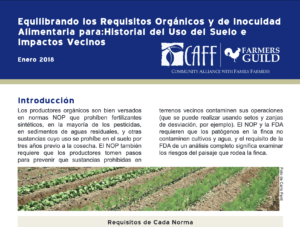
FSMA Y NOP: El uso del suelo
Esta hoja informativa proporciona una descripción general de lo que las granjas que necesitan estar en pleno cumplimiento con la Ley Federal de Modernización de la Seguridad Alimentaria (FSMA por
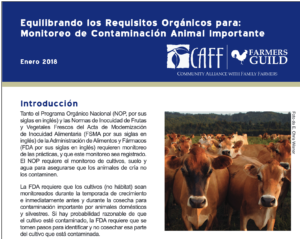
FSMA Y NOP: Supervisión de los animales
Esta hoja informativa proporciona una descripción general de lo que una granja debe hacer para cumplir con la Ley Federal de Modernización de la Seguridad Alimentaria (FSMA por sus siglas
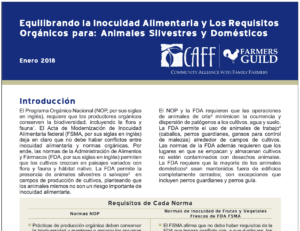
FSMA Y NOP: Animales silvestres y domésticos
Esta hoja informativa proporciona una descripción general sobre lo que las granjas que necesitan estar en pleno cumplimiento con la Ley Federal de Modernización de la Seguridad Alimentaria (FSMA) deben
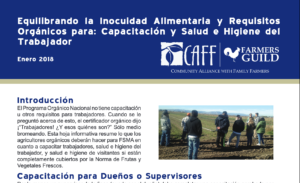
FSMA Y NOP: Higiene y salud de los trabajadores
Esta hoja informativa explica qué deben hacer las granjas que necesitan cumplir plenamente con la Ley federal de Modernización de la Seguridad Alimentaria (FSMA por sus siglas en inglés) para
Webinars

Value-Added Product Webinar Series for Farmers
Note: This webinar series has passed. Click here to watch the webinar series on CAFF’s YouTube Channel. Are you a farmer or rancher interested in producing or scaling a value-added

Right-Sized Sanitation Practices and Post-Harvest Tools for Small Farms Video
https://www.youtube.com/watch?v=djatZA_R3Zs&list=PLZUin76taTH_rV0BDx515X9zcS78fNOn7&index=33&t=1s Post-harvest processing presents both risks and opportunities for food safety, especially on small farms who process much of their produce before market. In this video from the 2022 California

On-Farm Food Safety Webinar
On 4/8/20 CAFF gave a webinar answering dozens of questions on on-farm food safety related to the COVID-19 pandemic. Judith Redmond from Full Belly Farm shared some tips and other

Requirements for Farms that Must Fully Comply with FSMA: Part 2
Organic agricultural professionals are invited to join the CCOF Foundation and Community Alliance with Family Farmers (CAFF) for a series of webinars on how the new federal food safety regulations

Requirements For Farms That Must Fully Comply With FSMA
Organic agricultural professionals and farmers are invited to join the CCOF Foundation and Community Alliance with Family Farmers (CAFF) for a series of webinars on how the new federal food

Webinar: Does FSMA apply to your Farm?
*Update 12/5/17* The slide with FSMA full exemptions mentions that farms with less than $25,000 in annual produce sales are fully exemption from FSMA. This is correct. We may not
COVID-19 Resources

New FDA Guidance on FSMA Qualified Exempt Requirements During Covid
The Food and Drug Administration (FDA) recently released temporary guidance on the requirements that farms must meet to be considered qualified exempt under the Federal Food Safety Modernization Act (FSMA).

New CDC Resource on Facemasks in Agriculture
Today (4/24/20) CDC released a new webpage providing information on facemasks, face coverings, and respirator use in agriculture. The article explains what type of face covering can be worn effectively

On-Farm Food Safety Webinar
On 4/8/20 CAFF gave a webinar answering dozens of questions on on-farm food safety related to the COVID-19 pandemic. Judith Redmond from Full Belly Farm shared some tips and other

New CAFF Resource: How to Run CSA Pick Up Sites during COVID-19
CAFF has created a new resource for farmers that have Community Supported Agriculture (CSA) pick up locations. The guide has tips for farmers and a sign that farmers could post

New CAFF Resource: How to Prepare for Farm Labor Shortages
CAFF has created a new resource to help farmers prepare for possible labor shortages due to COVID-19. The first page of this resource is a flowchart that helps farmers determine

On-Farm COVID-19 Food Safety Info & FAQs
By: Kali Feiereisel, MPH Senior Manager, Farmer Services Last updated: April 7th, 2020 We realize this is a time of great uncertainty and anxiety. Hopefully this blog post can

Guidance for Limited Reuse of N95 Filtering Respirators in Agriculture
To minimize the demand on NIOSH-certified N95 filtering respirators (commonly called “N95 respirators”) during the COVID-19 pandemic, this document discusses the option of limited reuse of N95 respirators. This document

COVID-19 FAQ for U-Pick Farms
Best practices and steps for farm managers. Employees should use gloves when handling money, or considering using cards to limit transfer of cash. If money is handled, hands should be

COVID-19 FAQ for Farm Stands
Simple one-pager: steps for farm stand operators. Communicate with customers through signs or social media asking them to stay home if displaying symptoms. Provide hand sanitizer at the front of

